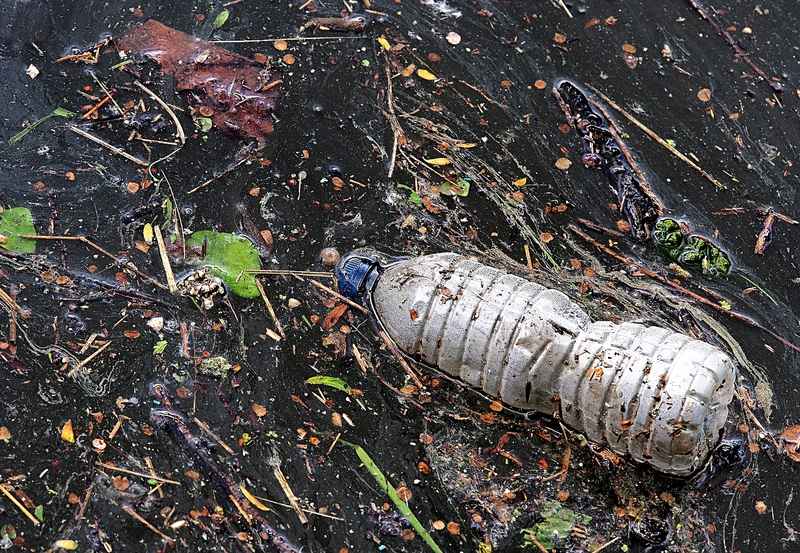Water contamination is one of the primary natural issues that we are confronting, as over 70% of the Earth’s surface is water-covered.
Water contamination can be characterized as the tainting of a stream, waterway, lake, sea, or some other stretch of water, exhausting water quality and making it harmful for the Earth and humans.
Water is essential and very important for life on Earth. The blend and structure of cell constituents and transport of supplements into the cells just as body digestion rely upon the water.
The pollutions present in water upset the immediacy of the instrument and result in long/momentary ailments.

The plausible pollutions and their potential courses are examined in the current survey. Proceeded to examine endeavors bring about specific procedures/innovations to expel the contaminants from water.
It likewise incorporates some significant crossover advancements and promising anticipated advances in the coming years.
There are different types of water contamination. Some are chemically bonded, and few are nonchemically bounded.
Some of them can be removed through the Normal home process, and some of them removed through the chemical process.
One of the best ways to remove chemical contaminations from water. This system, which is called a reverse osmosis system works by moving water through a semi-porous layer to stop bigger, progressively unstable atoms from entering.
Since this procedure can square particles that are bigger than water, contaminants with bigger atoms, for example, chlorine can’t be expelled.
These systems devour unmistakably more water than they produce, so they are most appropriate for household use.
These processes can be the filtration process. Reverse osmosis is one of the best ways to remove chemical contaminations.
There are two kinds of water contamination:
There are we mention main sources of water where chemical exists in water.
Insufficient sewage assortment and treatment are wellsprings of water contamination. As indicated by the United Nations, over 80% of the overall wastewater returns in nature without being dealt with or reused.
Even though it doesn’t directly affect water quality, urbanization and deforestation have a lot of backhanded impacts.
For example, chopping down trees and cementing over huge territories produces a speeding up of streams which doesn’t give enough time for water to penetrate and be cleaned by the ground.
Agriculture affects water contamination because of the utilization of synthetic substances, for example, composts, pesticides, fungicides, herbicides, or bug sprays running off in the water, just as animal’s feces, excrement, and methane (nursery impact).
For, contamination is legitimately in the water, as overabundance nourishment and manures are causing dystrophication.
Industries produce a ton of waste containing dangerous synthetic compounds and poisons.
An immense measure of mechanical waste is depleted in the new water, which at that point, streams into trenches, waterways, and in the long run, in the ocean.
Another wellspring of water contamination is the consumption of petroleum products, causing air contamination like a corrosive downpour, which at that point streams to streams, lakes, and different stretches of water.
Ordinary, trash, for example, plastic, paper, aluminum, nourishment, glass, or elastic, are kept into the ocean.
These things take a long time to several years to disintegrate, and in this manner, they are a significant reason for water contamination.
Created – among others – by power plants and uranium mining, radioactive waste can wait in nature for a great many years.
At the point when these substances are discharged coincidentally or arranged inappropriately, they undermine groundwater, surface water, just as marine assets.
Water contamination hurts biodiversity and amphibian ecosystems.
The lethal synthetic concoctions can change the shade of water and increment the measure of minerals – otherwise called eutrophication – which severely affects life in water.
Warm contamination, characterized by an ascent in the temperature of water bodies, adds to a worldwide temperature alteration and makes genuine peril water living beings.
Water contamination has exceptionally negative impacts on general wellbeing.
A lot of ailments come about because of drinking or being in contact with debased water, for example, loose bowels, cholera, typhoid, diarrhea, or skin contaminations.
In zones where there is no accessible drinking water, the primary hazard is drying out clearly.
Water boiling is one of the ancient and oldest ways to purify the water. When the water got boiled at 80 degrees, water gets clean, and all bacteria and contaminates get to kill at a specific heat.
It helps to kill the bacteria and clean the water. But again, in some cases, it may to not help to end and eliminate the hard metals from the water r small microorganisms.
Ameba is present in water is not suitable for heath, but it cannot remove or can kill through the boiling process. So, Boiling Water at home is a cheap and traditional way but not successful every time.
This is a general and most common process to clean the water at the very stage. Usually, 99.99% of contamination and chemicals from the water.
But excess use of chlorine in water can be dangerous for the lungs and stomach. Excess amount of chlorine in water is not recommended. It is mostly recognized upon the presence of a chemical in water.
Same with it, there are multiple resources and ways to remove the contaminations and we can remove the hard ailments and chemicals from the water.